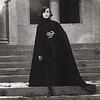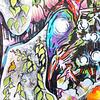Take a photo of a barcode or cover
emotional
reflective
sad
tense
slow-paced
Delightfully bleak. Some so funny you want to cry.
adventurous
challenging
dark
emotional
funny
hopeful
informative
inspiring
reflective
relaxing
sad
tense
fast-paced
Plot or Character Driven:
Character
Strong character development:
Yes
Loveable characters:
Complicated
Diverse cast of characters:
Yes
Flaws of characters a main focus:
Yes
challenging
emotional
sad
slow-paced
Plot or Character Driven:
Character
Strong character development:
Complicated
Loveable characters:
Complicated
Diverse cast of characters:
Yes
Flaws of characters a main focus:
Complicated
Honestly, I found these better than his plays, which was a pleasant surprise. Though they can blend together sometimes, my personal favorites were: One Night At Christmas, Grief, “The Hunstman”, Ward no. 6, Gusev , The Teacher of Literature, The Bishop, and The Bride.
For me, this collection cements Chekov over Dostoyevsky.
For me, this collection cements Chekov over Dostoyevsky.
Once again I don’t like collections of short stories. He’s the master though and I hadn’t read anything by him since high school and Jordan had this collection so why not. Idk I wish there were some like cultural criticism or political point he was making in the stories. I read a couple and each time I finished one I was like okay so what.
100 Years, 100 Books
"An ordinary man expects the good or the bad from outside [...], but a thinking man expects them from himself."
"Go and preach that philosophy in Greece, where it's warm and smells of wild oranges, it doesn't go with the climate here."
Despite this collection being published in 1903, it surveys the range of Chekhov's early works to some of his last. Never having read any of Chekhov prior to this, it took me a few stories (or roughly 50 pages) to build a relationship with his writing style in effort to make the work enjoyable, rather than laborious. The strength of his dialogue versus description was striking to me, the former being unwieldy or stiff and the latter, while still maintaining the same spirit, was thoroughly more enjoyable and engaging. I think Chekhov particularly excelled in his recreations of the natural world and the power it has over the moods of its inhabitants. Most of the stories are bitter, miserable, and dim, but nonetheless have a fantastical way of mechanically moving you along their scenes emotionlessly and passively. My favorites in the collection were the following: "A Boring Story," "Ward No. 6," "The Black Monk," and the "Lady with the Little Dog." My least favorites were typically either very short, focused on religion or clergy-men, and or dialogue-heavy. I think his best writings were the stories where his ideas had room to breathe and grow and culminate into something truly dismal yet full of meaning. The writing and its subject had a strange influence over my own frame of mind, and I was very happy to be finished with the book. Overall, I'm glad to have read it and deem it worthy of the investment I laid into reading it carefully, but I don't think I'll be revisiting Chekhov anytime soon, if ever.
"An ordinary man expects the good or the bad from outside [...], but a thinking man expects them from himself."
"Go and preach that philosophy in Greece, where it's warm and smells of wild oranges, it doesn't go with the climate here."
Despite this collection being published in 1903, it surveys the range of Chekhov's early works to some of his last. Never having read any of Chekhov prior to this, it took me a few stories (or roughly 50 pages) to build a relationship with his writing style in effort to make the work enjoyable, rather than laborious. The strength of his dialogue versus description was striking to me, the former being unwieldy or stiff and the latter, while still maintaining the same spirit, was thoroughly more enjoyable and engaging. I think Chekhov particularly excelled in his recreations of the natural world and the power it has over the moods of its inhabitants. Most of the stories are bitter, miserable, and dim, but nonetheless have a fantastical way of mechanically moving you along their scenes emotionlessly and passively. My favorites in the collection were the following: "A Boring Story," "Ward No. 6," "The Black Monk," and the "Lady with the Little Dog." My least favorites were typically either very short, focused on religion or clergy-men, and or dialogue-heavy. I think his best writings were the stories where his ideas had room to breathe and grow and culminate into something truly dismal yet full of meaning. The writing and its subject had a strange influence over my own frame of mind, and I was very happy to be finished with the book. Overall, I'm glad to have read it and deem it worthy of the investment I laid into reading it carefully, but I don't think I'll be revisiting Chekhov anytime soon, if ever.
The Student:
The Student by Chekhov is a rather brilliant story, one of the most brilliant that I’ve read, considering its short length, and is essentially a Bildungsroman in-snapshot that captures a great leap forward in the maturation of a young man’s life—the nameless student who surely represents all young men who are figuring things out. But, importantly, he meets these two women, these widows, and the mother relays to him a story from the Bible about Jesus. And while that’s happening, the daughter, who was beaten by her husband into becoming a deaf-mute, is kind of just staring at him, glancing at him. It’s interesting because in this short story, there’s two layers to the meaning of what’s happening. You have the telling of the story of Jesus and Peter, which leads to this epiphanous moment at the end of the story where the student realizes that the purpose of life, and he’s naively kind of coming to this epiphany, but all the same, it’s rather important, because it’s going to, I think — I’m interpreting this optimistically — set him on a quest toward helping human nature, relaying stories like this.
And I think it shows, ironically, that coming from me as an atheist, the power of religion as a good force, because it inspired the student in a positive direction to realize that even though he doesn’t really understand the story or why it’s being told, and he’s just assuming that it has something to do with the woman’s personal life, he doesn’t really try to interpret the actual story of Jesus and Peter. But it does lead him on a quest to being a better person and spreading, not necessarily the word of Jesus, but stories—spreading stories, which could, in fact, be an autobiographical nod to Chekhov himself, who I assume was a student at some point. And yet the great irony here is that the story itself had no meaning to the student: just the fact that it was selected by this widow and relayed to him. It’s quite clear that Chekhov has this sort of mock appreciation for Christian tales. And yet the story had some value, which is more of a commentary on the nature of humans to latch onto meaning where they wish to find it and not necessarily where it should be found.
But you have the main layer of the story, then you also have the story of Jesus itself, which mentions the betrayal of Judas to Jesus and then also this sort of lighter betrayal of Peter, who is basically commanded by Jesus not to interfere with Jesus’s punishment, and he abides by that but feels a great sense of guilt. So the student doesn’t make any sense of the story, just understands it on this meta level of like, wow, this really affected someone’s life, and therefore the purpose of living must be to guide others with knowledge like this. I would be remiss to mention the presence of the garden as setting in both the student’s life and Jesus‘s story, which is surely meant to be an ironic symbol of growth and vivacity.
But the story itself also represents the lives of these two women, which in turn represent a great many peasant-like people, and the loyalty of Peter is similar to the loyalty of the daughter, who, just from one sentence, we learned she was beaten by her husband, but from that we can extrapolate that she remained loyal to him despite the pain it caused her. And it’s really quite an inverse of the tale of Peter and Jesus. We view Jesus as not an abuser, but as this holy god-like figure, and yet it’s fascinating that in a sly way, Chekhov equates him to an abuser of a peasant woman. Their stories are remarkably different, yet the message within the story of Jesus and Peter applies to this woman’s life as well, but in such a wildly different way, a way that is more grounded in reality.
And Chekhov is even somewhat biting in a sense — and by the way, this is all what one infers from the story; there’s nothing laid out by Chekhov to suggest this, and that’s why it’s so brilliant, because so much can be interpreted from such little material — not to digress, but Chekhov is portraying what human betrayal actually looks like, when we remove Jesus from the equation and these saintly figures, what does human betrayal actually look like? It doesn’t look like the way it looked for Jesus and Peter. It looked like this: a man beating a woman, and a woman remaining loyal to him. And once again, there’s a deep sense of irony. This timeless story is being told about loyalty, and yet the woman who remains loyal to her husband, and therefore Christian values, suffers most greatly from it. Chekhov shatters the idealistic virtues of Christianity in so few words, demonstrating how life’s infinite possibilities cannot be addressed by such following black-and-white moral rules.
And I just found the young woman’s body language in the scene where she’s watching the student so carefully, trying to gauge his reaction and his thinking, so heartbreakingly fascinating, where I imagine she’s looking at him wondering, is he gonna glean the “right meaning” from this? Is he going to become a better person from this story? Because I imagine she must, more than anyone, feel conflicted. Her abusive husband was a Christian, we’re all Christians, and what have we learned from this? Nothing.
And I just found the young woman’s body language in the scene where she’s watching the student so carefully, trying to gauge his reaction and his thinking, so heartbreakingly fascinating, where I imagine she’s looking at him wondering, is he gonna glean the “right meaning” from this? Is he going to become a better person from this story? Because I imagine she must, more than anyone, feel conflicted. Her abusive husband was a Christian, we’re all Christians, and what have we learned from this? Nothing.
dark
emotional
funny
hopeful
inspiring
reflective
relaxing
sad
medium-paced
Plot or Character Driven:
A mix
Strong character development:
Yes
Loveable characters:
Yes
Diverse cast of characters:
Complicated
Flaws of characters a main focus:
Complicated
The Greatest.






